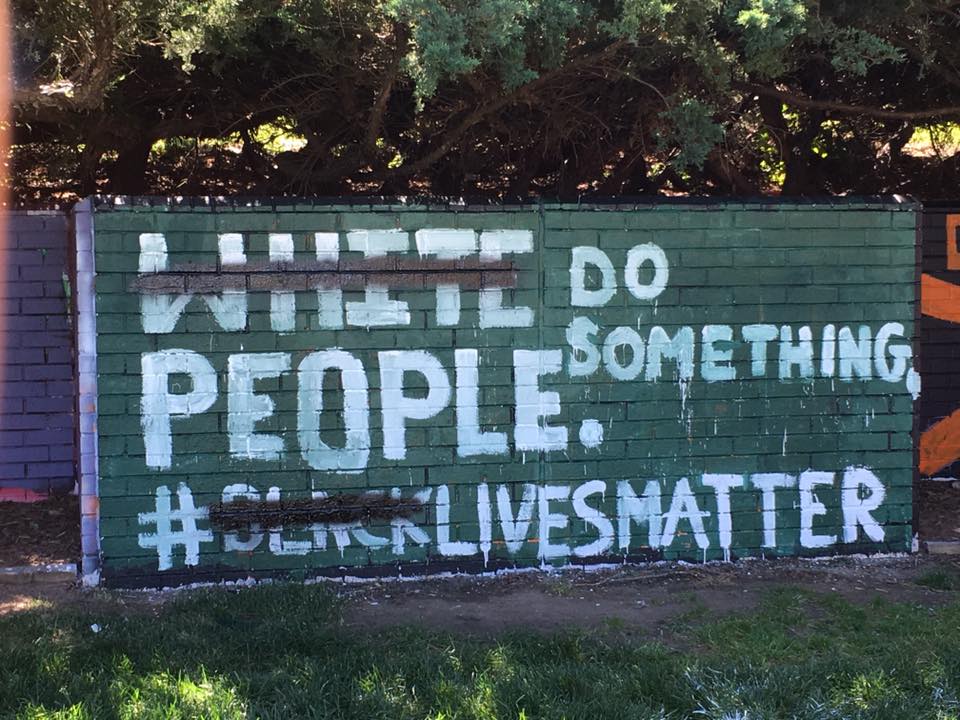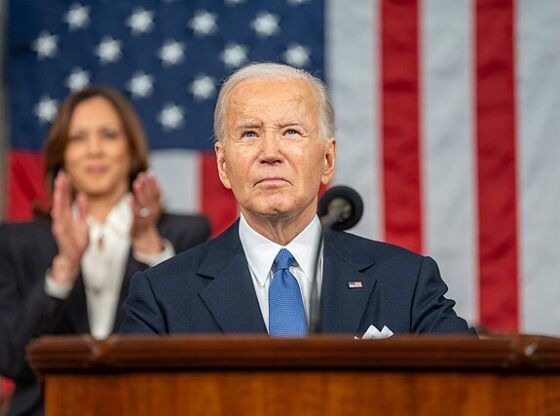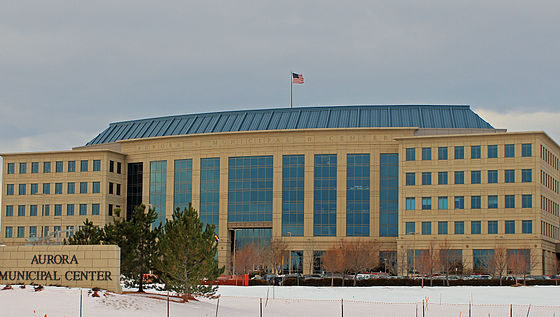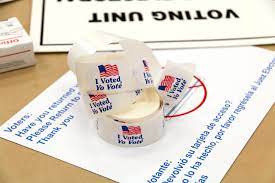Outrage concerning messages on the Free Speech Wall located outside of Driscoll Bridge continued last week. On Oct. 6, an anonymous student painted over the wall with quotes from a Minor Threat song entitled “Guilty of Being White” as well as from famous author Ayn Rand. The message read: “The worst guilt is to accept unearned guilt. I’m convicted of a racist crime; I’ve only served 19 years of guilty of being white. I’m sorry for something I didn’t do, lynched somebody but I didn’t know who. Guilty of being white.” The first sentence is a quote from Rand, the remainder comes from Minor Threat.
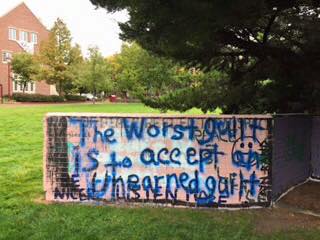
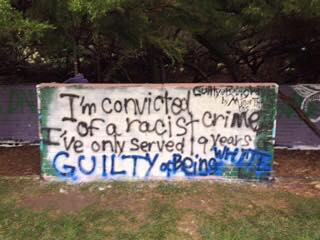
The quotes, written on Oct. 6, ignited existing tensions stemming from a similar incident that occurred on Sep. 28 in which the words “White” and “Black” were crossed out on a Black Lives Matter message stating “White People: Do Something. #BlackLivesMatter.” (See photo)
Undergraduate Student Government (USG) President Tess Greenwald and Vice President Chandler Carlson sent an email to the student body on Sept. 30 regarding the original incident at the Free Speech Wall, which was entitled “Message to the DU community from Undergraduate Student Government.” In the email USG addressed the current racial climate at DU following the first incident, stating that “…it is not hard to see that there was an inherent disrespect when one of our own decided to cross out ‘#BlackLivesMatter’ and ‘White People. Do Something.’”
DU Young Americans for Freedom (YFA) President Matthew Rhodes’ attention to racial unrest on campus originated from the USG email. After reading the email and observing the response from students regarding the second incident, Rhodes decided to invite the campus community via a message sent through OrgSync “to engage in a discussion/debate about these issues” in Sturm Hall at 3:30 p.m. on Oct. 7. Not all DU students received this message, only those who were previously registered through the OrgSync server.
According to Rhodes’ remarks at the debate, he wanted to have an “intelligent discussion and a free discussion without having to to admit to the realities that USG, for example, is pushing.”
The meeting, which went on for over two hours, saw a crowd of over 100 students and faculty. The crowd was encouraged to ask Rhodes questions in a Q&A-style forum, which ended up being a complex and heated debate.
Rhodes explained to the audience, prompted by a question from a student in the crowd, that the club/foundation supports “…basically a free market, limited government and strong national defense.” Rhodes also stated that the club focuses on “…libertarian conservative views.”
This is the first year of the club’s existence on campus, but YFA is a national organization that was founded in 1960 and has chapters located at various universities across the country.
From the outset, Rhodes attempted to distance himself and YAF from the anonymous individual who painted the wall, even though he claimed in his email that the undisclosed painter was “one of our [YAF’s] members”. Rhodes also stated during the discussion that YAF “does not endorse the individual’s actions”, yet when asked to clarify, Rhodes said that “some of us [YAF members]” endorsed the actions of the painter, whom he called “brave” for painting on the wall, especially following the backlash that came from the first incident on Sep. 28.
The concept of free speech was frequently debated, leading Rhodes to repeatedly defend the individual by saying that what occurred on the wall was simply a display of free speech.
Rhodes and YAF’s protection of the identity of the painter was a frequent source of criticism from the audience. Rhodes stated that “safety concerns” were a primary reason for the protection of the person’s identity.
Black Lives Matter and the status of students of color at DU was also a large source of contention during the discussion.
“I am not in support of the Black Lives Matter movement. I think it’s an ineffective way to address the problems that people are talking about. I also believe that a lot of the issues we are talking about—white privilege, institutional racism—are pretty much phantom issues,” said Rhodes.
“…The whole national movement [Black Lives Matter] started from a lie.”
These statements were the final straw for many audience members, prompting some to leave in tears and others to leave in obvious frustration. This walkout was later criticized by Rhodes, who said, “I believe that every single person that left this discussion because their feelings were hurt or because they don’t want to hear what other people have to say…If you don’t want to hear what other people have to say you shouldn’t be on a university campus. Period. You should be expelled.”
Several Campus Safety officers were, in fact, present at the event. Community Resource Officer Morgan Sellers, who was on duty with Campus Safety at the discussion later said, “Campus Safety was not concerned that there was going to be an incident that threatens student safety” and that officers were present simply to “create a space in which students could feel comfortable to express their views.”
The event ended around 5:30 p.m.
Listen to the full audio of the event on our YouTube Channel, and watch a related video on racial tensions on campus.
Updated 12/19/16 2 p.m.
Updated 10/11/16 3 p.m.

